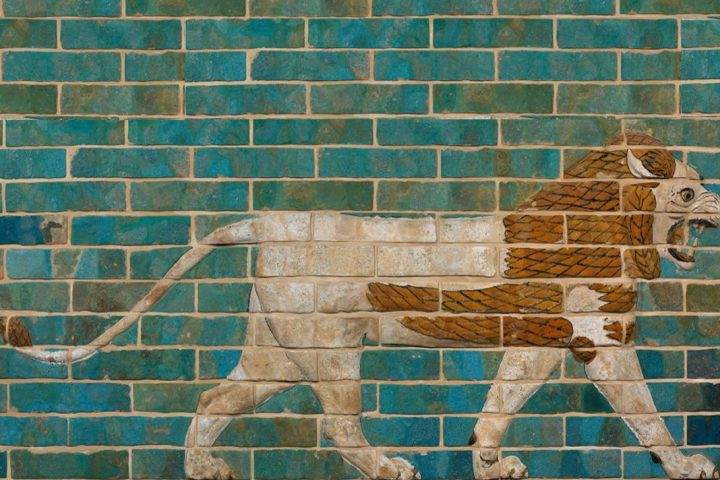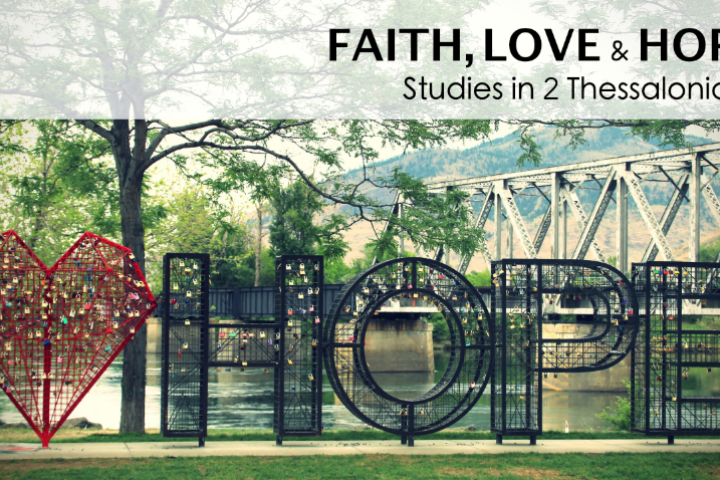Sermons by Bernard Bell (Page 3)
Darkness Before Dawn
Dan 8
The darkest and coldest time of night is just before dawn. Venus is now visible in the pre-dawn sky shining far more brilliantly than any star. But the sun arises, Venus disappears, and the day becomes bright and warm—although we do want some rain. Daniel’s second vision is of a ram and a goat each with multiple horns. He is told that it concerns the time of the end. Towards the end it gets very dark indeed for God’s people. In such darkness it is hard to believe the Reformation motto: post tenebras lux, “after darkness, light.” No wonder Daniel is appalled by the vision.
The Lion and the Lamb
Dan 7:15-28
Happy New Year—Lunar New Year. We are now in the Year of the Tiger. There are no tigers in Daniel, but there are ferocious wild beasts: a lion, a bear, a leopard, and a fourth beast beyond comparison, all representing oppressive empires. We return to the Book of Daniel midway through chapter 7. Daniel wants to know the meaning of the fourth beast, the ten horns, and the little horns. He is in good company: very many people have wanted to know the meaning of these. Join us Sunday as we try to make sense of them.
A New Shoot from a Dead Tree
Matthew 1-2
The four Sundays of Advent begin the church’s annual liturgical calendar. It is a season of longing and hope. We look back and remember Israel’s hope that God would come to save his people. We look forward in our own hope that Jesus will come again. During these four Sundays we will look at how the four gospels begin their story of Jesus in very different ways, beginning this Sunday with Matthew. Can the way Matthew tells the story of Jesus help us make sense of our own story?
Two Kingdoms
Dan 7
Nebuchadnezzar had a dream of a 4-part statue, which Daniel interpreted for him as four kingdoms (Daniel 2). In its counterpart chapter (7), Daniel has a dream of four beasts which are interpreted as four kings. He also sees one like a son of man receive eternal dominion from the Ancient of Days. What are these kings and kingdoms? What is the relationship between the beastly empires and the human kingdom? Can they coexist?
Dare to Stand Alone
Dan 6
A large empire requires a large imperial bureaucracy. Daniel flourished in this system and rose to the very top because of his excellence. But both King Darius and Daniel get caught in a bureaucratic nightmare, trapped by a law which cannot be repealed. By this law Daniel must be fed to the king’s hungry lions even though he is the king’s loyal subject. We all know the outcome because the story of Daniel in the Lions’ Den is one of the best-known in the Bible. But why is this story in the Book of Daniel? Can we put ourselves back in the story and feel the tension as Daniel dared to stand alone against the king and his officials? Please read Daniel 6 in preparation for Sunday.
The Moving Finger Writes
Dan 5
After four chapters about Nebuchadnezzar the Great, the first Babylonian king of the Jewish exile, Daniel moves on to Belshazzar, the last king. As the king was enjoying a great feast, disembodied fingers wrote a message on the wall. One person’s graffiti is another’s art, as shown by the world-famous graffiti artist, Banksy. In this case, God’s graffiti is a prophetic message to the king: your days are numbered; you’ve been weighed in the balance and found wanting. These are now common sayings. Why was the writing on the wall for Belshazzar?
Heaven Rules
Dan 4
Nebuchadnezzar, King of the Universe, was the greatest king of his time. He was a warrior who conquered all rivals, and a builder who made Babylon great. But he needed to learn an important truth: he might be ruler on earth, but Heaven rules. The proud king was humbled until he learnt this. God has appointed as the true King of kings one who humbled himself to begin with. The Lion that conquered is the Lamb that was slain.
Dare to Have a Purpose True
Dan 3
“If” is a powerful word. It is used a lot in computer code. It is the title of a famous poem by Rudyard Kipling. It is a word that can arouse possibilities or longings or fear. At the heart of Daniel 3 lie two sets of “if…if not” clauses, one posed by Nebuchadnezzar, the other in the reply of Shadrach, Meshach and Abed-nego. In the face of “if…if not” and the threat of the fiery furnace, the three Jewish friends dared to have a purpose true.
Oceans Rise, Empires Fall
Dan 2
Throughout history kingdoms and empires have risen and fallen. Long live the king! But no human king lives forever nor does his dynasty. No matter how eternal an empire thinks it will be, it is destined to fall. Nebuchadnezzar has a dream of an enormous statue representing a sequence of empires, and of a stone that smashes the statue into non-existence, then grows to fill the earth. What is the meaning of the statue and the stone? Please read Daniel 2 before Sunday, since it’s a long chapter and there won’t be time to read it during the service.
Flourishing in a Foreign Land
Dan 1
The number of forcibly displaced people in the world has more than doubled in the past ten years and now stands at 82.4 million. Forced displacement is nothing new: 2600 years ago much of Jerusalem was displaced to Babylon by Nebuchadnezzar. Among them were Daniel and his three friends. Could they flourish in a strange land that did not acknowledge the Lord? Can we flourish today where the Lord is not acknowledged? We begin a new series in the Book of Daniel, and in the next two months will cover the first seven chapters. Would you please read 2 Kings 23–25 and Daniel 1 to prepare for this Sunday.
Work: Burden or Opportunity?
2 Thessalonians 3:6-18
Most of us work to earn money so we can eat our daily bread. Is work good or bad? Is it a necessary evil to be endured? Or is it a valuable use of our time? In Thessalonica there were some Christians who had stopped working and were expecting others in the community to supply their daily bread. We’ll see how Paul responded to them, and why he chose to work as a tentmaker while engaged in Christian ministry.
The Beloved Community
2 Thessalonians 2:13-3:5
God is love: a community of perfect love, flowing between Father and Son through the Spirit. In generosity he shares his love in creation and in redemption. When we respond to the gospel in faith we enter the Beloved Community. The Thessalonian Christians were a local chapter. They were the Lord’s beloved, and they were beloved of Paul. Their present suffering did not indicate that God did not love them. Paul prayed that they be drawn more fully into God’s love. On this Valentine’s Day, do you feel part of the Beloved Community?


